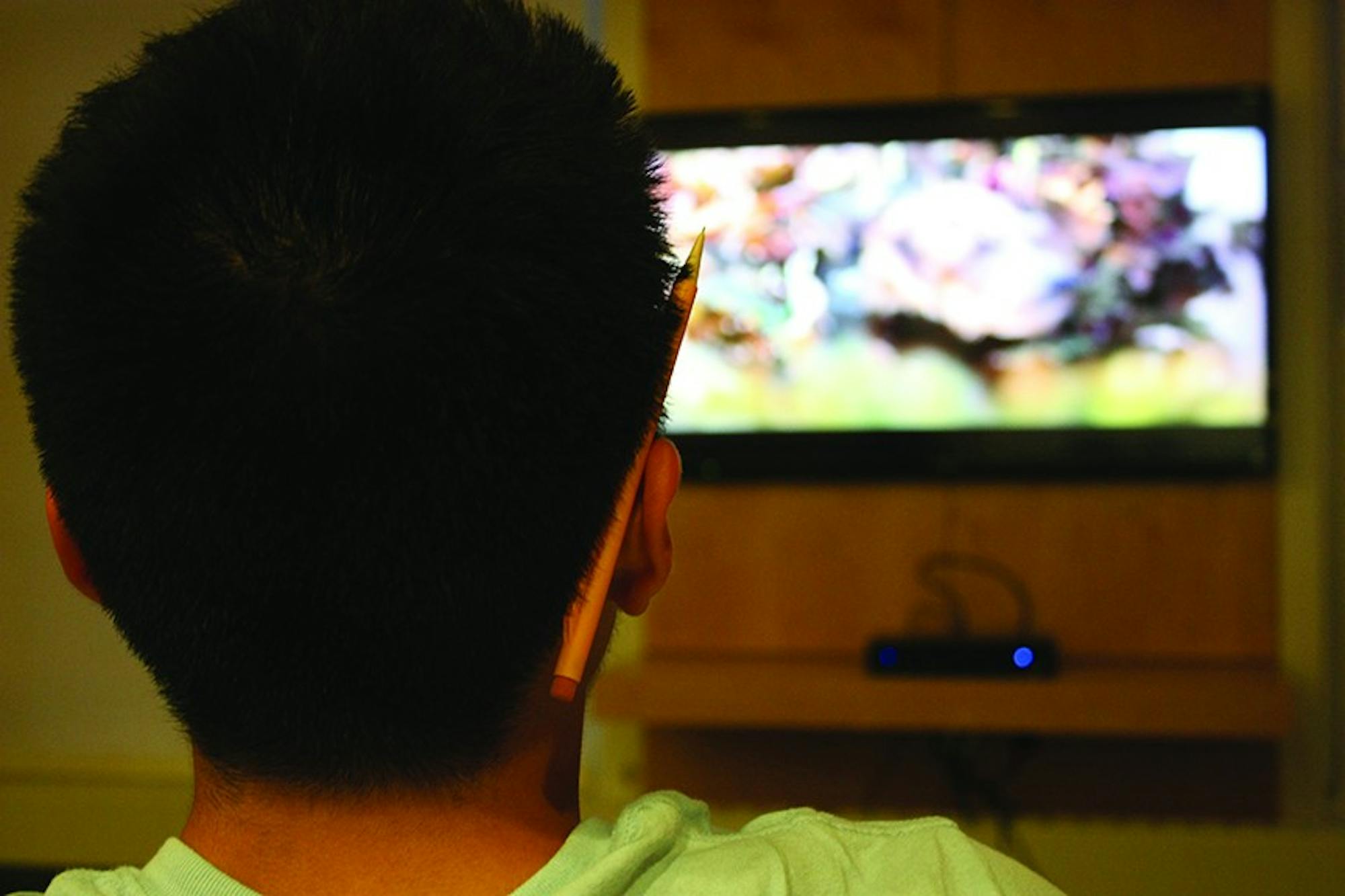I’ve always been bad at pop culture. I don’t know any actors, I’ve never subscribed to a magazine and I went years pronouncing “Nike” without the “e.” No one even bothered to correct me. My relationship with television is no exception to this pattern. Somewhere along the way, in an attempt to justify my general cluelessness, I adopted an obnoxious holier-than-thou perspective and decided that TV was a base and unfulfilling activity for people who didn’t have anything better to do with their time.
And then this past winter, I watched “The Bachelor” with my sorority — for about five weeks until contestants on the show became too mean, and we all felt uncomfortable. But it still managed to permanently change my thoughts on TV. For those who don’t watch, here’s the premise: a hot guy selects a wife from a pool of thirsty contestants. Isolated from the rest of the world and provided with a steady flow of alcohol, these women are pushed to their breaking points, and we relish watching every second of it.
In short, it is a degrading and reductive show. Roxane Gay says it well in her book, “Bad Feminist,” arguing that reality TV forces women into pre-established, artificial roles.
“The repetition of gender acts in reality television becomes grossly stylized through artificially tanned skin, elaborate hair extensions, dramatic make up, surgically enhanced bodies and chemically injected faces,” Gay writes. “The acts become grossly stylized through bad behavior, often carefully orchestrated by producers.”
I, too, must be a bad feminist, because I don’t really care. Yes, the show is awful, but it gave me an escape from the real world. Once a week, I would sink into the couch in our TV room with an extra large bag of popcorn and a group of friends, and for the next two hours the only worry on our minds was whether Ben would choose Lauren B. or JoJo.
Bachelor time was our time. And I realized it wasn’t about what we were watching. It was about where and when and with whom.
Amy Lawrence, a film and media studies professor, believes in the incredible power of television as a shared experience.
“Watching television in a group emphasizes the program’s status as an event; you have to all be there together at the same time,” Lawrence said. “It also increases feedback, commentary and emotional involvement. People mirror each others’ reactions. For instance, comedies are funnier with a large audience.”
That’s why when sports fans fill an arena, the energy is palpable. When we respond to the reactions of those around us, we create a positive feedback loop in which excitement builds and builds. I hate football, for example, but I love watching the Super Bowl. The rowdiness of a large group of people crammed in front of one television is contagious.
Tiffany Dyson ’18 has never missed a Super Bowl. Each year, her family meets up with friends to place bets, eat food and enjoy each other’s company. At college, she was determined to keep the tradition alive.
“I’ve watched it all my life and didn’t want being away from home to hinder the tradition,” Dyson said. “The Super Bowl definitely made me nostalgic. I texted my dad the whole time since I knew he was watching at the same time.”
For the past two years, she has watched the game with a large group of people at Beta Alpha Omega fraternity.
“It felt like home,” Dyson said. “It’s a unifying experience because it brings students from different backgrounds together, through one common interest.”
Television serials, Lawrence argued, promote even more social interaction.
“Each episode of a serial like ‘Game of Thrones’ is open-ended, encouraging speculation and discussion about what might happen next,” Lawrence said.
Will Huff ’15 watched “Game of Thrones” at Phi Delta Alpha fraternity every single Sunday at 9:00 p.m. The viewing parties were important. Homework was done before 8:30 p.m., six couches filled by 8:40 p.m. and the room fell silent at 9:00 p.m. on the dot.
“The second the episode started, there was constant shushing for everyone to be quiet, because God forbid we miss any part of the dialogue — or even the introduction music,” Huff said.
Phoebe Hersh ’18 joined the viewing parties at Phi Delt each Sunday. Everyone was really invested in the show, she said. That’s what made it so entertaining.
“They would order pizza and everyone would cheer or boo at the screen,” Hersh remembered.
After each episode, people would share their opinions or predictions. The show was a shared experience; it was common ground.
“It didn’t matter if you were a senior enjoying your last term at Dartmouth, or a sophomore who took off the winter and was finally enjoying being a brother,” Huff said. “We all came together to watch our favorite characters die.”
I often associate television series with solitary Netflix sessions. In the age of binge-watching, it is easy for TV to become a solo pastime rather than a weekly anticipated event. But when a show becomes a viewing party, great things happen. Viewing parties can serve as breaks in our busy lives, ways to connect with people we don’t know and opportunities to share an experience with the people we love.
Even if you’re watching an airbrushed, overly-glorified rando handing out symbolic flowers to his suitors in a dramatic rose ceremony, it’s the camaraderie that counts.




